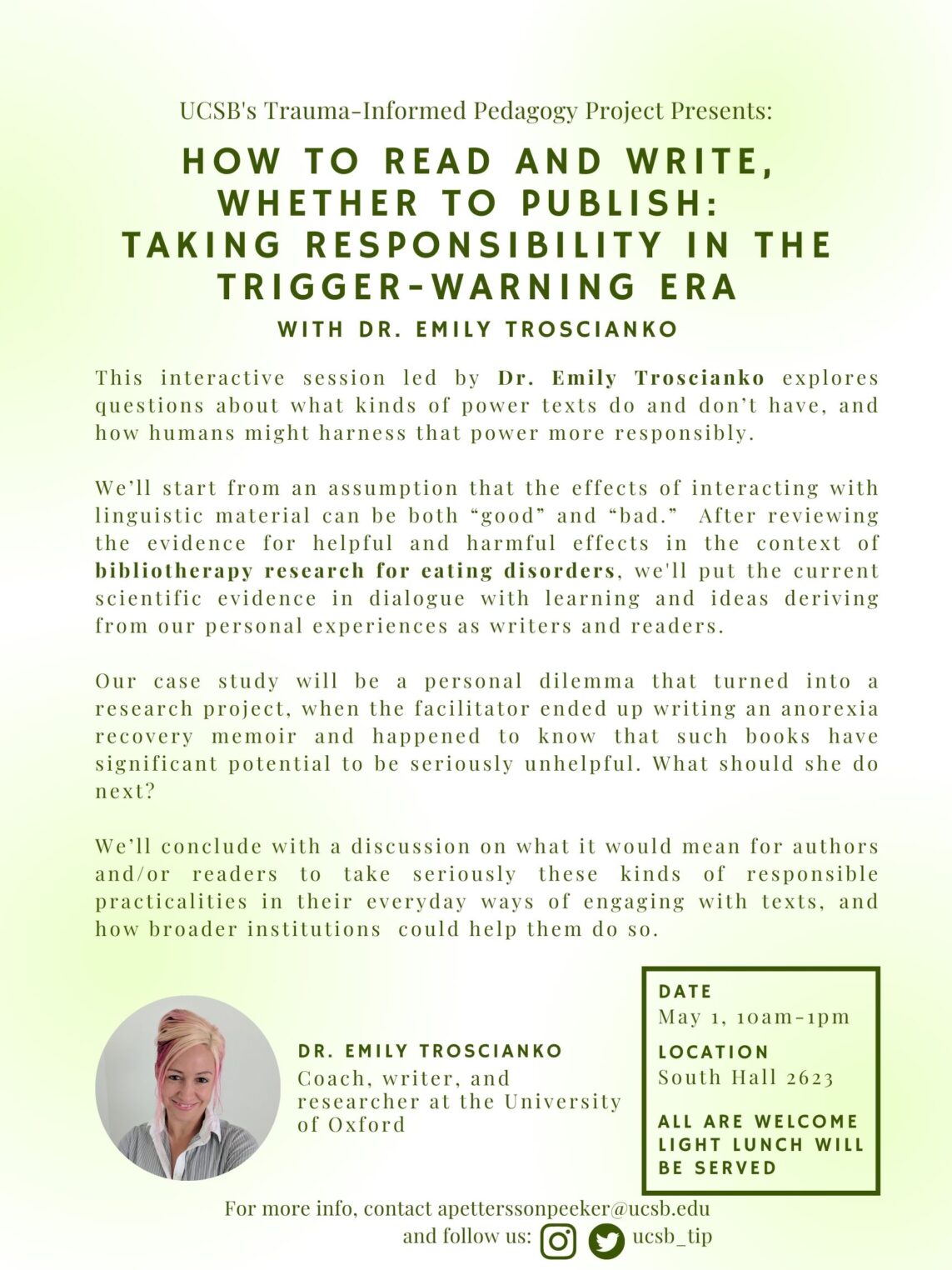How to read and write, whether to publish: Taking responsibility in the trigger-warning era
with Dr. Emily Troscianko
10am-1pm
May

In this interactive 3-hour session we’ll explore all four parts of the author/text/reader/context constellation, asking questions about what kinds of power texts do and don’t have, and how humans might harness that power more responsibly.
We’ll start from an assumption that the effects of interacting with linguistic material (whether it’s labelled “literature” or something less grand) can be both “good” and “bad”, helpful and harmful, desired and undesired, and we’ll briefly review the evidence for helpful and harmful effects in one specific health context: bibliotherapy research for eating disorders. We’ll then put the current scientific evidence (which is still minimal) in dialogue with learning and ideas deriving from our personal experiences as writers and readers.
Our case study will be a personal dilemma that turned into a research project, when the facilitator ended up writing an anorexia recovery memoir and happened to know that such books have significant potential to be seriously unhelpful. What should she do next?
We’ll expand out from this example to consider any risk/benefit domain you’d like to work with. Focused first on the author pole, we’ll work through questions like “what should be the bar for putting something non-innocuous out into the world?”, “how confidently can we predict possible causes and effects?”, and “if we predict positive/negative effects, how can we maximize/minimize the chance of achieving them?”. Moving to the text itself, we’ll ask what linguistic/literary features might be most relevant to generating helpful/harmful responses. And turning to readers and contexts of reading, we’ll identify factors with significant potential to shape a reading process for good or ill, in terms of both background influences and deliberate strategies—doing what we can to look into our own blindspots.
We’ll conclude with some big-picture brainstorming on what it would mean for authors and/or readers to take seriously these kinds of responsible practicalities in their everyday ways of engaging with texts, and how broader institutions (schools, publishers, etc.) could help them do so.
Research Center Affiliations
There are no upcoming events at this time. Check back soon!